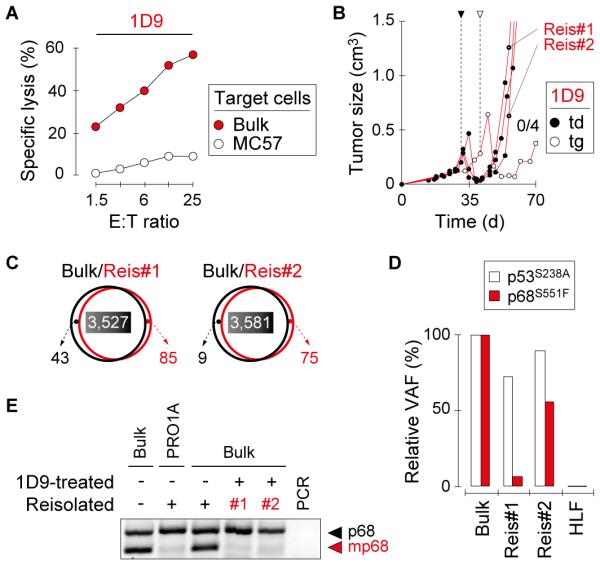Fig. 2. Mutant-specific TCR gene therapy causes regression of primary 8101 tumors with the subsequent escape of antigen-negative variants.

A, 1D9-engineered T cells efficiently lyse Bulk tumor cells. Specific lysis of Bulk and control MC57 tumor cells was analyzed in vitro using 1D9td T cells One representative experiment of three is shown. B, T cell therapy targeting mp68 causes regression of Bulk tumors that eventually escape. Mice with established Bulk tumors were treated with 1D9tg or 1D9td T cells. T cells were injected on day 29 (td) or 39 (tg), as indicated. Data are compiled from 3 independent experiments. Bulk tumor reisolates are indicated (Reis#1, Reis#2). C, Bulk tumor reisolates have similar mutational profiles compared to the parental tumor. DNA of Reis#1 and Reis#2 was analyzed by whole exome sequencing and compared to original Bulk tumor cells. The total number of mutations in each population is indicated. The numbers of shared mutations have colored background. D, Bulk tumor reisolates show diminished variant allele frequency (VAF) of mp68. The VAF of p53S238A and mp68 in Reis#1 and Reis#2 is shown in relation to the VAF detected in Bulk. E, Bulk tumor reisolates do not express the mp68 gene. RT-PCR was used to identify expression of the mutant allele of p68 in Reis#1 and Reis#2. Bulk tumor cells and a reisolated progressor variant of 8101 that escaped an immunocompetent normal host and lost the mp68 gene (PRO1A (33)) were used as controls.
